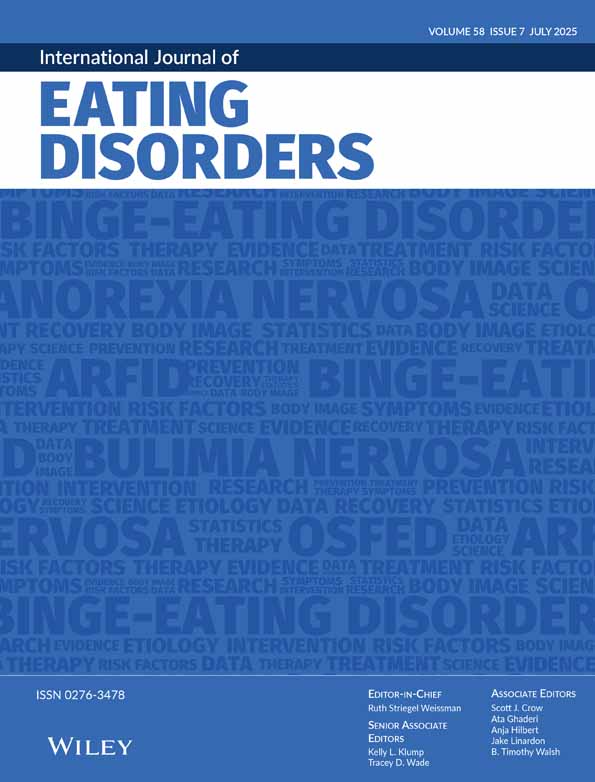Specificity of self-concept disturbances in eating disorders
Abstract
Objectives
The current study examined self-concept deficits among three diagnostic groups of eating-disordered patients, evaluated the relationship between self-concept deficits and depression, and addressed the specificity of self-concept deficits in eating-disordered patients.
Method
Three groups of eating-disordered patients (anorexia nervosa, N = 33; bulimia nervosa, N = 38; binge eating disorder, N = 28) were first compared to three matched healthy control groups and then to two psychiatric comparison groups (patients with anxiety disorders, N = 37; patients with depressive disorders, N = 37).
Results
All three groups of eating-disordered patients displayed lower self-esteem and higher feelings of ineffectiveness compared with the healthy controls, even after controlling for depression. Differences in self-esteem and ineffectiveness were also found between eating-disordered patients and psychiatric controls. However, not all of the differences were significant. In addition, the psychiatric controls also exhibited lower self-esteem than normative samples.
Discussion
Findings suggest that self-concept deficits are more pronounced in eating-disordered patients but cannot be regarded as highly specific. © 2004 by Wiley Periodicals, Inc. Int J Eat Disord 35: 204–210, 2004.




